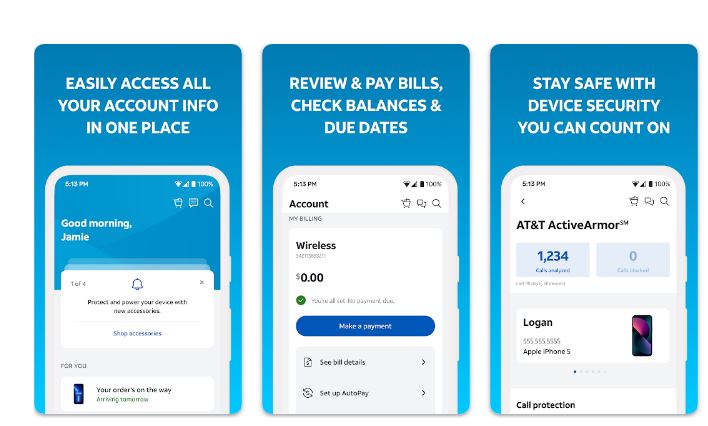
One of the biggest corporate data compensation cases in recent history, the AT&T Settlement Eligibility 2024 Breach is significantly changing how consumers perceive data accountability. The telecom behemoth agreed to pay $177 million to consumers whose private information was compromised after two significant cyber incidents in 2024. This move, though expensive, represents a shift toward accountability in digital security.
Data from almost 73 million accounts, including names, addresses, birthdates, Social Security numbers, and account passcodes, were compromised in the first incident, which was made public in March 2024. The scope of exposure was then greatly expanded when AT&T disclosed another breach involving call and text metadata just four months later. This second attack reportedly impacted “nearly all” cellular customers, including those of network partners, and was linked to a third-party platform run by Snowflake, Inc.
| Detail | Information |
|---|---|
| Company | AT&T Inc. |
| Settlement Amount | $177 million |
| Incidents Covered | March 2024 (“AT&T 1”) and July 2024 (“AT&T 2”) breaches |
| Eligible Participants | Current and former AT&T customers impacted by either or both incidents |
| Maximum Compensation | Up to $7,500 combined |
| Claim Deadline | November 18, 2025 |
| Final Court Hearing | December 3, 2025 |
| Official Claim Website | TelecomDataSettlement.com |
| Settlement Administrator | Kroll Settlement Administration LLC |
| Customer Helpline | 833-890-4930 |
These hacks served as a shocking reminder to many that even the biggest companies are susceptible to cyberattacks. According to reports, AT&T was advised by federal agencies, including the FBI, to postpone public disclosure until they could evaluate potential security risks. This decision was reasonable, but once the scope became apparent, it infuriated customers.
Customers may be eligible for financial relief under the settlement, depending on their unique situation. Up to $5,000 can be claimed for documented financial losses by those impacted by the March breach, and up to $2,500 can be claimed by those impacted by the July breach. A claimant may be eligible for a combined maximum of $7,500 if they suffered losses from both. AT&T will make sure that every verified class member receives some compensation by allocating the remaining funds proportionately to those without documented losses.
The claim procedure is surprisingly simple. Customers can check their eligibility, enter their Class Member ID or account information, and submit any necessary documentation by going to TelecomDataSettlement.com. The November 18, 2025, deadline for final submissions has already become a popular reminder on cybersecurity forums and financial blogs.
According to legal experts, this settlement represents a particularly novel approach to corporate responsibility. The strategy guarantees that both individuals with and without documentation receive equitable consideration by dividing compensation tiers and providing proportionate payments. One privacy lawyer characterized the framework as “remarkably transparent and remarkably equitable in its approach.”
The case also highlights a broader shift in the way people think about data protection. Data security was once thought of as an abstract technical issue, but it now has immediate emotional and financial repercussions. Customers now perceive data breaches as extremely personal violations—of privacy, trust, and peace of mind—instead of distant corporate failures.
Many people believe that the AT&T hack is eerily similar to other well-known events, such as the Equifax hack or the T-Mobile leak. There is a consistent pattern to public outrage each time: shock, fatigue, and resignation. However, this settlement provides something that is uncommon in these situations: a planned route to compensation and, possibly, restored trust.
In and of itself, AT&T made a very wise business decision by agreeing to a settlement without acknowledging fault. The business focused its resources on resolution rather than extending years of litigation. According to industry analysts, this move was strategically advantageous—limiting reputational harm and establishing a precedent for proactive consumer engagement—despite being financially significant.
The public’s response has been conflicted but surprisingly sympathetic. While some contend the settlement only covers a portion of the damage, others view it as a just conclusion that shows corporate responsibility. However, the result has significantly enhanced industry dialogue, leading other tech and telecom firms to reconsider their cybersecurity strategies.
According to privacy advocates, this incident should serve as a reminder to people to take greater precautions when it comes to safeguarding their data. Subscriptions to password management software and credit monitoring services have increased recently; this is an indirect result of growing anxiety about technology. Customers can greatly lessen their susceptibility to fraud or identity theft by making use of these resources.
It is impossible to overlook the case’s emotional undertone. Numerous impacted clients expressed feeling violated and even ashamed that their private data had been compromised. As a result, the settlement offers symbolic validation in addition to monetary value. It recognizes that data breaches are profoundly human disruptions that impact dignity, livelihood, and trust rather than just being business mistakes.
Experts in cybersecurity see AT&T’s response as a teaching moment. Rebuilding trust is aided by the company’s cooperation with law enforcement and dedication to victim compensation. As one analyst put it, “By confronting the problem head-on, AT&T has demonstrated that transparency can be remarkably effective in restoring credibility even under immense scrutiny.”
This settlement may change the way class-action data cases are handled in the future. It establishes a framework that promotes accountability and resolution, giving consumers hope that future breaches may result in quicker and more equitable outcomes. In many ways, it represents a growing expectation that businesses of all sizes protect data with the same vigilance that they protect profits.
The settlement is still in progress, and on December 3, 2025, the final approval hearing is scheduled. Following approval, funds will be disbursed following the deduction of legal and administrative fees. In the interim, claimants are advised to exercise caution, confirm their eligibility solely from official sources, and send in their data well in advance of the due date.
